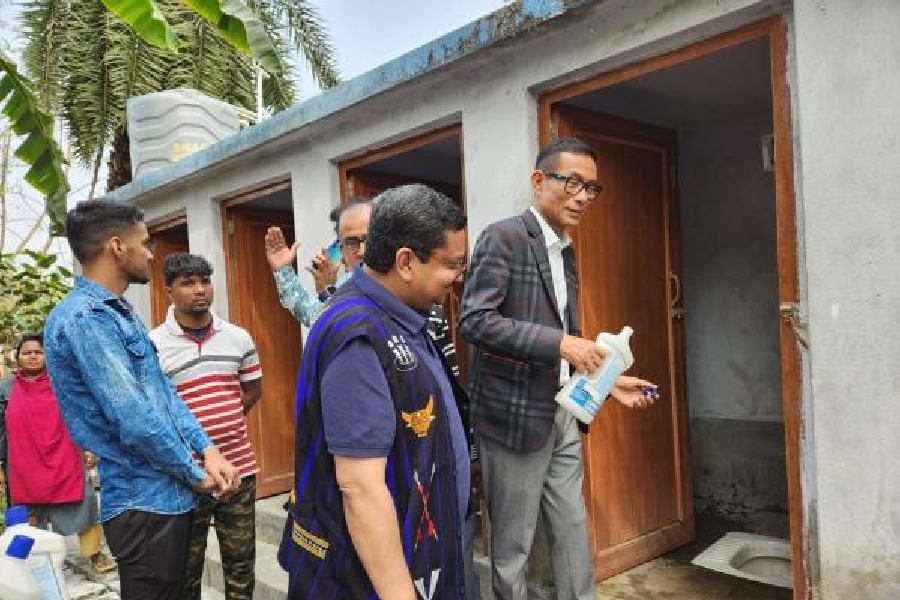Trial for a new sanitation product has started in Duttabad which, if successful, would improve hygiene of the area, prevent odour from toilets, and do away with the need to dig up new septic tanks every six to 12 months.
The product is an invention from Nagaland, and after successful implementation in the Northeast, is now being introduced in Bengal.
“We are kickstarting the trial from the worst-affected toilets in Duttabad,” said local councilor Rajesh Chirimar on February 25. “A biological solution - Aerobio - is being poured into six community commodes and an individual one today and the results will be scrutinized after about a fortnight.”
Cleaner toilets
Since Duttabad is an added area of Salt Lake, not all toilets there are linked to the central sewage system. In such cases, a septic tank has to be dug underground to collect the faecal waste.
“After about six months these tanks fill up, the toilets clog up and raise an unbearable stink,” explained a resident, Srabanti Malick. “The corporation vans come with pipes to clear the solid sludge using suction but the lanes of Duttabad are so narrow that the vans cannot reach many of them. So the tanks have to be shut, the toilets abandoned, new ones built and the process repeats itself.”
The new product Aerobio is to be poured into the commode once a year and it promises to break down the faeces, remove odour and significantly reduce bacteria like E. Coli from the system. “Poor management of toilet waste is a major health hazard,” said Watinuksung Jamir, whose company WJ Décor has patented the technology behind Aerobio.
“Septic tanks are made of brick and mortar and so fecal waste easily leaks out to contaminate groundwater, the soil, and water bodies nearby, that are often a source of drinking water. This problem is amplified during floods and leads to outbreaks of diarrhoea, typhoid, dysentery and is a leading cause of infant mortality across India,” said Jamir, who hails from Nagaland but spoke in Bengali, much to the delight of the Duttabad residents who had gathered in the field of Bidyadhari Vidyalaya for the launch.
The product is — not a chemical but — a biological solution that is safe and eco-friendly. “It has been developed under an MOU signed by my company and Indian Institute of Science Education and Research Kolkata, in 2019,” said Jamir. “The West Bengal pollution control board tested it for a year till December 2023 and is now recommending it. The Nagaland government has been buying this product and distributing it to civic bodies and in Bengal, Bidhannagar Municipal Corporation is the first to take a step towards this.”
Chirimar said details would be chalked out after assessing the product, about a fortnight later. “I’ve built 10 community toilet complexes in Duttabad, each with four lavatories, a urinal, and a bath cabin. About 125 individual toilets have also been built under the Nirmal Bangla scheme, where residents paid Rs 1,000 and the rest of the cost was borne by the state and the Corporation. Everyone in the ward has access to toilets now, be it at home or nearby,” he said.
The solution costs Rs 2,500 and needs to be used once a year. “If any individual wants to try the product over the next three weeks, we can provide it free of cost for trial purposes. Thereafter, if the product is effective, we are eager to provide it in the community toilets from the ward’s funds.”
